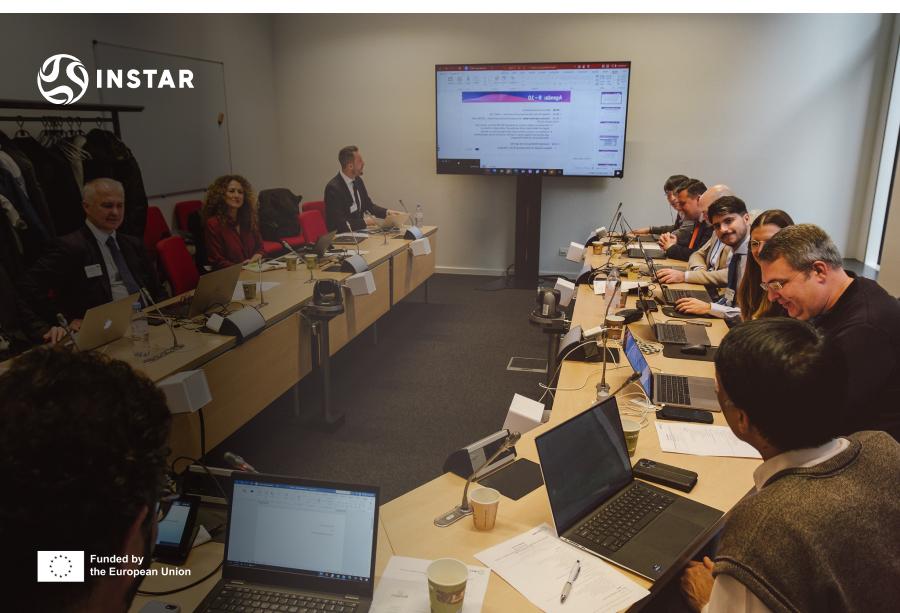The INSTAR project emerges as a new initiative aimed at harmonising the standards landscape across the European Union and relevant entities from Japan, Australia, Canada, Taiwan, Singapore, South Korea, and the USA. Leading a new era in global standardisation, INSTAR focuses on six advanced technology sectors (AI, Cybersecurity, Digital ID, Quantum, IoT, 5G, 6G, and Data), fostering collaboration between SDOs, SMEs, Horizon Europe Projects and researchers, policymakers, and more.
In today's rapidly evolving digital landscape, standardisations serve as crucial navigational tools within policy frameworks. INSTAR addresses the imperative for enhanced understanding while fostering collaboration among relevant entities to formulate effective global standards strategies.
Unlike existing standardisation efforts, INSTAR boasts a unique approach by not only anticipating the potential of emerging technologies but also ensuring these advancements are communicated effectively within the global standardisation ecosystem.
In this, INSTAR’s efforts are closely aligned with the EU Strategy on Standardisation, reinforcing the collective influence of European countries in shaping global ICT standards. In supporting the EU Standardisation Roadmap, INSTAR strengthens the EU’s leveraging power in international forums, facilitating the adoption of standards that reflect Europe’s thought leadership, security and interoperability requirements.
INSTAR Task Forces: technical and industry experts to ensure international standardisation alignment
At the heart of INSTAR's strategy are its European Task Forces (ETFs), dedicated groups of standardisation experts that concentrate on specific technology areas and integrate technical and industry expertise to facilitate robust knowledge exchange. These ETFs aim to cultivate a European common vision, aligning project activities and monitoring the implementation of standards on a macro level. Through extensive stakeholder engagement and high-quality reporting, the ETFs are poised to make a significant impact on the international standardisation landscape.
Max Welford, part of BluSpecs (project coordinators), on INSTAR’s European Task Forces:
“[The Task Forces] promote direct person-to-person exchanges and serve as invaluable sources for staying updated on the latest developments in standardisation. This proactive approach aids in navigating technology domains efficiently, ensuring international alignment.”
INSTAR legacy: influencing international ICT standardisation effort
The project's legacy is expected to extend far beyond its immediate outputs, setting the stage for future technological, corporate, and social advancements based on influencing international standardisation efforts from a democratic EU perspective and reinforcing Europe's leading position in cutting-edge innovations. Among its anticipated key exploitable results are the establishment of six International Task Forces and the development of six high-level standards frameworks, tailored to address the nuanced complexities within each technology domain.
INSTAR's approach to global ICT standards and policies is proactive and inclusive, with plans to sign Memorandums of Understanding with partner organisations across the globe that wish to join the European Task Forces. These agreements aim to foster mutual aspirations and objectives, potentially reshaping the development and adoption of international standards in critical technologies such as AI, IoT, cybersecurity and Quantum computing.
As the digital landscape continues to evolve, the INSTAR project stands as a testament to the power of collaborative standardisation efforts, aiming to unify international technology standards while respecting the unique needs and values of participating relevant entities.
